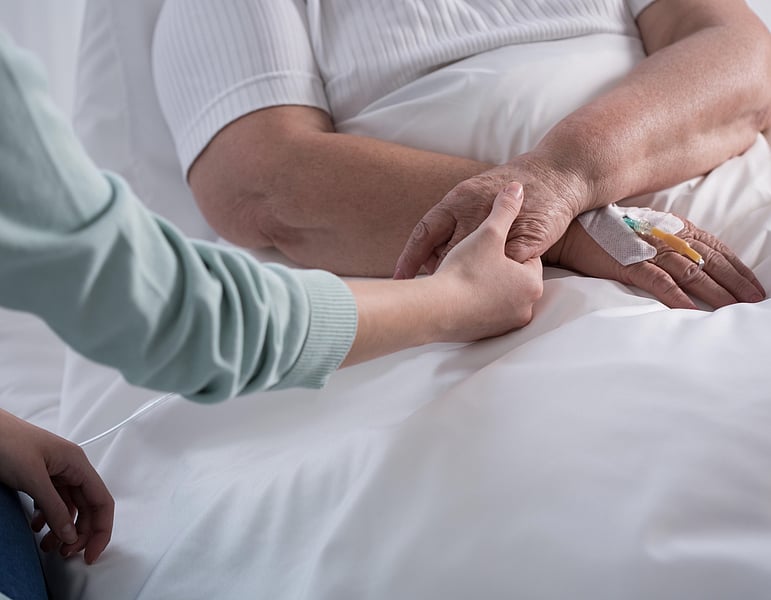Get Healthy!

- Robert Preidt
- Posted June 6, 2022
In Small Study, New Treatment Brings Remission of Rectal Cancer in All Patients
A small study delivers startling results on the power of a new immunotherapy treatment against rectal cancer: The drug triggered remission in all the patients who got it.
All of them had mismatch repair-deficient (MMRd) locally advanced rectal cancer and were given dostarlimab - an anti-PD-1 monoclonal antibody - every three weeks for six months as a first-line treatment.
It was to be followed by standard chemo-radiation and surgery, but patients who went into remission could skip those follow-up treatments.
After at least six months of follow-up, all 14 patients achieved remission - with no evidence of tumors on medical scans and tests, digital rectal exam or biopsy.
To date, none of the patients have required chemo-radiation or surgery, and no cases of progression or recurrence have occurred during follow-up, which is as long as 25 months in some patients.
No serious side effects have surfaced either, according to the Memorial Sloan Kettering Cancer Center (MSK) study published June 5 in the New England Journal of Medicine and presented at the annual meeting of the American Society of Clinical Oncology, in Chicago.
"Since MMRd colorectal cancer is responsive to PD-1 blockade in the metastatic setting, we hypothesized that locally advanced mismatch repair-deficient rectal cancer is sensitive to checkpoint blockade and may alter the requirements for chemo-radiotherapy and surgery, or eliminate the need for additional treatments altogether," explained study co-leader Dr. Andrea Cercek. She is co-director of MSK's Center for Young Onset Colorectal and Gastrointestinal Cancer.
"Surgery and radiation have permanent effects on fertility, sexual health, bowel and bladder function," Cercek added in an MSK news release. "The implications for quality of life are substantial, especially in those where standard treatment would impact childbearing potential. As the incidence of rectal cancer is rising in young adults, this approach can have a major impact."
For Sascha Roth, the new drug was a godsend.
In 2019, Roth, who was 38 at the time, noticed some rectal bleeding. After doing a biopsy, her doctor delivered the bad news.
"I completely melted down," the Maryland resident told The New York Times.
Set to start chemotherapy at Georgetown University, a friend had insisted Roth first see Dr. Philip Paty at Memorial Sloan Kettering, in New York City. It turned out that Roth was eligible to enter the clinical trial of the new immunotherapy. If she had started chemotherapy, she would not have been, the Times reported.
Because her hopes of remission were not high, Roth had planned to move to New York for radiation, chemotherapy and possibly surgery after the trial ended. To preserve her fertility, she had her ovaries removed and put back under her ribs.
After the trial ended, Cercek gave her the good news.
"We looked at your scans," she told the Times. "There is absolutely no cancer."
Two years later, she still has no trace of cancer.
"While longer follow-up is needed to assess response duration, this is practice-changing for patients with MMRd locally advanced rectal cancer," said study co-leader Dr. Luis Diaz Jr., head of the division of solid tumor oncology at MSK.
Dr. Alan Venook, a colorectal cancer specialist at the University of California, San Francisco, who was not involved with the study, said he thought this finding was a first.
A complete remission in every single patient is "unheard-of," he told the Times.
More information
There's more on rectal cancer at the U.S. National Cancer Institute.
SOURCE: Memorial Sloan Kettering Cancer Center, news release, June 5, 2022







